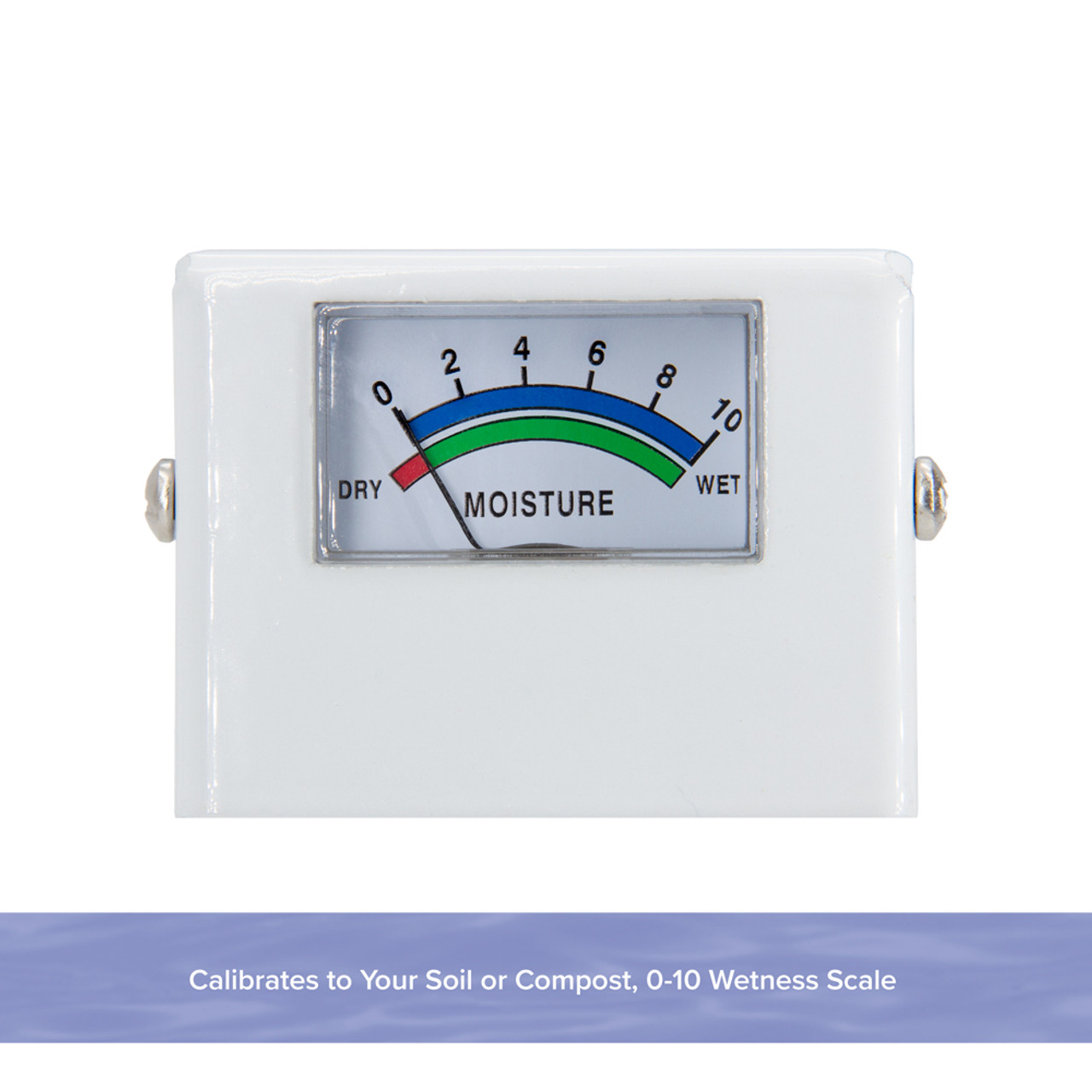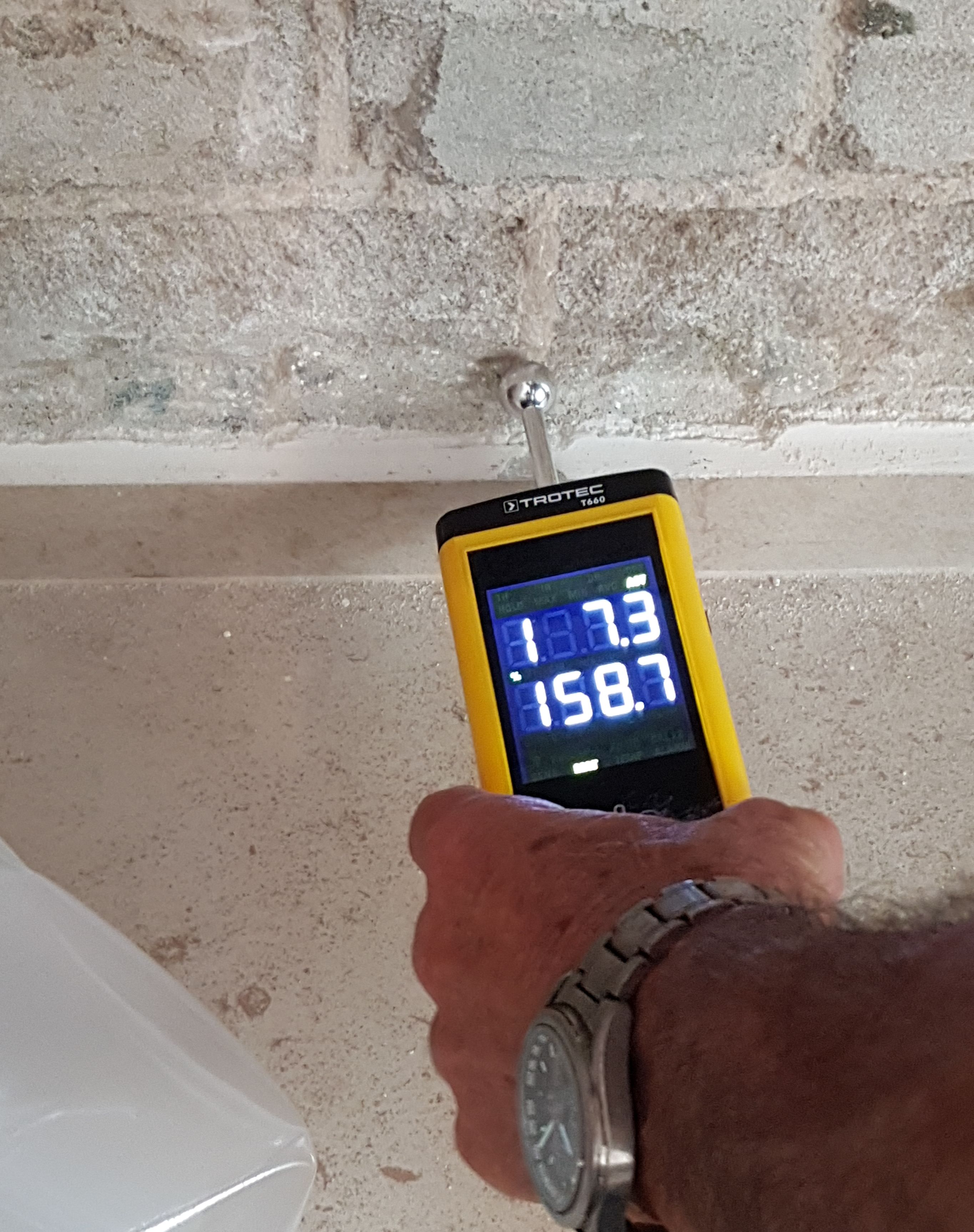The Ultimate Guide to Dampness Meters: A Comprehensive Introduction and Exactly How They Can Save You Cash
Dampness meters serve as important tools in detecting and checking moisture material in products, aiding in protecting against pricey problems and guaranteeing the quality of products. Comprehending the subtleties of different types of dampness meters, their applications, and the potential cost-saving benefits they use can be a game-changer for experts and organizations alike.
Sorts Of Moisture Meters
Different sorts of dampness meters are readily available for different applications in various industries. One typical kind is the pin-type dampness meter, which gauges the electric resistance between two pins inserted into a material. This kind appropriates for timber, drywall, and various other structure products. Pinless dampness meters, on the various other hand, usage electromagnetic sensor plates to scan a larger area without causing damages to the product's surface area. Moisture Meter. These meters are perfect for swiftly analyzing dampness degrees in huge locations such as wall surfaces and floorings.

Additionally, there are likewise specialty moisture meters designed for particular materials like dirt, grain, or hay. These meters provide exact dampness readings customized to the special properties of the product being evaluated. Infrared moisture meters gauge the thermal buildings of a product to determine its moisture content non-invasively, making them valuable for applications where pin or pinless meters may not appropriate. Recognizing the various kinds of moisture meters available can aid markets pick the most ideal tool for their certain moisture dimension demands.

Advantages of Using Wetness Meters
Moisture meters use very useful advantages in precisely checking and examining wetness levels in varied materials and environments. One of the main benefits of utilizing moisture meters is the prevention of prospective damages caused by excess dampness.
Additionally, making use of moisture meters can lead to raised energy performance. By recognizing areas with high dampness degrees, such as leaks or bad insulation, changes can be made to boost energy conservation and lower utility prices. In farming setups, moisture meters play an important role in maximizing crop returns by allowing farmers to keep track of dirt wetness degrees and make notified watering decisions. In general, the advantages of utilizing moisture meters extend throughout various markets, providing cost-effective options and promoting far better high quality control practices.
Exactly How to Choose the Right Dampness Meter
Choosing the appropriate dampness meter includes taking into consideration vital variables such as material compatibility, measurement range, and calibration accuracy. When picking a wetness meter, it's important to ensure that the meter is suitable for the specific material you will be screening. Various products have varying electrical properties that can influence moisture readings, so picking a meter reference made for your material is crucial for exact outcomes. Furthermore, consider the dimension series of the wetness meter. Make certain that the meter can discover wetness levels within the variety needed for your applications. Calibration precision is one more essential variable to bear in mind. Choose for a moisture meter with trusted calibration to guarantee constant and exact readings. Some meters may call for periodic calibration modifications, so comprehending the calibration process is essential. By thoroughly evaluating these variables, you can select a wetness meter that satisfies your needs and offers exact wetness measurements for your jobs.
Appropriate Methods for Dampness Meter Usage

Cost Financial Savings Through Wetness Meter Applications
Exactly how can the critical utilization of moisture meters lead to considerable price financial savings throughout different industries? In the farming sector, moisture meters aid in determining the optimum time for collecting crops, stopping excess or over-drying dampness that can influence the last item's high quality.
In a similar way, in building, wetness meters aid stop expensive damages by finding wetness levels in structure materials, such as timber or concrete, which can result in architectural problems if not addressed without delay. By identifying trouble areas early, professionals can take rehabilitative procedures to avoid considerable repair work or replacements, ultimately conserving money and time.
Furthermore, in the food handling industry, moisture meters are crucial for keeping an eye on item quality and guaranteeing conformity with safety and security laws. By accurately measuring wetness material in foodstuff, suppliers can prevent putridity, preserve freshness, and minimize waste, causing substantial cost savings. Generally, the critical application of dampness meters is a valuable investment that can bring about substantial cost reductions and enhanced effectiveness throughout various industries.
Final Thought
In final thought, moisture meters are important devices for measuring and finding wetness degrees in different products. By using the right wetness meter and following correct techniques, customers can efficiently protect against costly problems caused by excess dampness.
Wetness meters offer as vital tools in finding and keeping track of moisture web content in materials, assisting in avoiding pricey damages and making certain the high quality of items. Infrared wetness meters gauge that site the thermal residential or commercial properties of a product to identify its moisture material non-invasively, making them valuable for applications where pin or pinless meters may not be suitable.Wetness meters supply indispensable benefits in accurately keeping track of and analyzing moisture levels in diverse products and atmospheres. In farming settings, moisture meters play a critical function in optimizing plant yields by allowing farmers additional hints to check soil dampness degrees and make educated watering choices.In conclusion, moisture meters are important devices for determining and finding dampness levels in different materials.